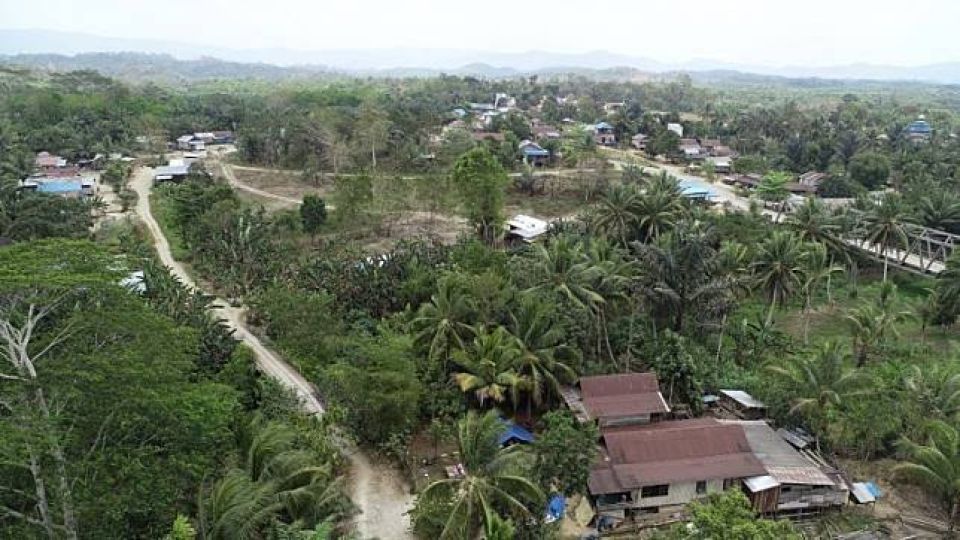February 9, 2023
JAKARTA – With construction underway on President Joko “Jokowi” Widodo’s new capital city project, the government has begun laying out plans to develop the health infrastructure of Nusantara, which is expected to be up and running next year.
But with Nusantara situated over 256,000 hectares in the dense forests of East Kalimantan, experts want the government to also anticipate the numerous diseases endemic to the province, including mosquito-borne malaria and lymphatic filariasis, commonly known as kaki gajah, or elephantiasis.
“Contagious diseases only exist if there is interaction between people and the source [of disease],” Riris Andono, an epidemiologist at Gadjah Mada University (UGM) in Yogyakarta, said on Tuesday. “With the new capital still a forest right now, there are no outbreaks yet. But once people move in, [infections] are bound to happen.”
While it would be impossible to stamp out endemic diseases in Kalimantan by 2024, Riris said the government needed to prepare early-detection measures geared to mitigate the health risks.
Public health expert Tjandra Yoga Aditama suggested a thorough epidemiological surveillance, including of pathogens, disease carriers and endemic diseases in the new capital and its surrounding areas.
“[The government needs] to conduct intensive retrospective analysis and prospective surveillance [for diseases], both until the new capital starts its operations and for the years to come,” he said on Tuesday.
According to a 2022 report by the East Kalimantan Health Agency, throughout 2021, the province is still struggling to curb infectious diseases, including malaria, as well as tuberculosis and HIV, all of which have seen an increase in cases compared to 2020.
A study published in Malaria Journal last November also noted that East Kalimantan has a higher prevalence of malaria compared to other provinces on Kalimantan Island.
Dengue fever is also endemic in East Kalimantan, which ranked among the six biggest contributors to nationwide dengue cases and deaths from January to October 2022, the Health Ministry said last year.
More recently on Jan. 31, the ministry said that of the six regencies and cities in East Kalimantan where filariasis is endemic, none to date have managed to eradicate the tropical disease. It also said the province ranked among the top 50 percent of Indonesian provinces with the highest number of filariasis cases last year.
Drastic environmental changes
While these diseases are not unique to East Kalimantan, health experts say that ongoing deforestation to make way for new construction poses an increased risk of human settlement closer to natural pathogens. And this requires the government to craft a tailor-made health strategy for Nusantara.
“If you cut down the trees, there will be an increased chance for animals that might be carrying diseases to come into contact with people,” epidemiologist Dicky Budiman said on Tuesday.
“There needs to be a strategy specifically [for the new capital] that not only maps out existing diseases afflicting people, but also animals and their ecosystems.”
Carefully planned urban and environmental planning, Dicky continued, would be key in keeping the new capital and its future residents healthy, as the government needed to consider how the influx of people and manmade structures would impact the environment.
“For instance, with the forest there, [rainwater] will just be absorbed. But without it, [the government] needs to carefully plan out where the water will go. […] They also need to be careful about plumbing and waste management,” he added.
Building hospitals
Following a visit to Nusantara last week, Health Ministry secretary-general Kunta Wibawa Nugraha said the government would also focus on developing health services in the nation’s new capital and its surrounding areas.
“[At Nusantara], we will not just build hospitals, but also Puskesmas [community health centers] to strengthen [disease] prevention efforts. In addition, we will also strengthen disease surveillance and laboratories,” Kunta said in a statement on Thursday.
To this end, the ministry plans to allocate a portion of its 2023 budget, through the Special Allocation Fund (DAK) financing scheme, to equip the five existing health centers and two hospitals surrounding the new capital with better health equipment.


